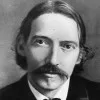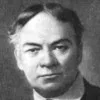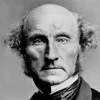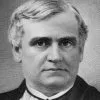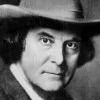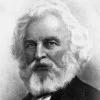The richest man in the world is the one who dispizes riches the most.
[The riches man in the world is the one who despises riches the most.]
Josh Billings (1818-1885) American humorist, aphorist [pseud. of Henry Wheeler Shaw]
Everybody’s Friend, Or; Josh Billing’s Encyclopedia and Proverbial Philosophy of Wit and Humor, ch. 131 “Affurisms: Plum Pits (1)” (1874)
(Source)
Quotations about:
satisfaction
Note not all quotations have been tagged, so Search may find additional quotes on this topic.
Apollo: all I ask is what I own already,
And the peace to enjoy it, sound in body
And mind, and a promise of honor
In old age, and to go on singing to the end.[Frui paratis et valido mihi
Latoë, dones, et precor, integra
Cum mente; nec turpem senectam
Degere, nec cithara carentem.]Horace (65-8 BC) Roman poet, satirist, soldier, politician [Quintus Horatius Flaccus]
Odes [Carmina], Book 1, # 31, l. 17ff (1.31.17-20) (23 BC) [tr. Raffel (1983)]
(Source)
This poem is said to have been inspired by the new temple to Apollo built by Augustus on the Palatine in AUC 726. It is framed as being from a poet (likely Horace himself) considering what to ask from Apollo as a blessing. These are the concluding four lines.
Apollo here is referred to as the son of the goddess Latona (Greek Leto).
The reason for the longer-than-usual list of translators is that this passage is quoted at the end of Montaigne's Essays, Book 3, ch. 13 "Of Experience," the final essay in his collection, written in 1587, and translations from that context are also included here.(Source (Latin)). Alternate translations:Apollo graunt, enjoy health I may
That I have got, and with sound minde, I pray:
Nor that I may with shame spend my old yeares,
Nor wanting musike to delight mine eares.
[tr. Florio (1603)]Latona's Son,
In Minde and Bodies health my own
T' enjoy; old Age from dotage free,
And solac'd with the Lute, give me.
[tr. Fanshaw; ed. Brome (1666)]O (great Apollo) grant
To me in health, and free from life's annoy,
Things native, and soon gotten to enjoy;
And with a mind compos'd old Age attain,
Not loathsome, nor depriv'd of Lyrick strain.
[tr. "Sir T. H."; ed. Brome (1666)]A Mind to use my present Store
With Health and Life, but not so long
As brings Contempt, or cramps my Song;
Grant this Apollo, and I ask no more.
[tr. Creech (1684)]O thou son of Latona, grant me to enjoy my acquisitions, and to possess my health, together with an unimpaired understanding, I beseech thee; and that I may not lead a dishonorable old age, nor one bereft of the lyre.
[tr. Smart/Buckley (1853)]O grant me, Phoebus, calm content,
Strength unimpairEd, a mind entire,
Old age without dishonour spent,
Nor unbefriended by the lyre!
[tr. Conington (1872)]And health
Give thou, Latoë, so I might
Enjoy my present wealth!
Give me but these, I ask no more,
These, and a mind entire --
And old age, not unhonour'd, nor
Unsolaced by the lyre!
[tr. Martin (1864)]Give me health in myself to enjoy the things granted,
O thou son of Latona; sound mind in sound body;
Keep mine age free from all that degrades,
And let it not fail of the lyre.
[tr. Bulwer-Lytton (1870)]Grant it to me, Apollo, that I may enjoy what I have in good health; let me be sound in body and mind; let me live in honor when old, nor let music be wanting.
[tr. Cotton/Hazlitt (1877)]Grant it to me, Apollo, that I may enjoy my possessions in good health; let me be sound in mind; let me not lead a dishonourable old age, nor want the cittern.
[tr. Cotton/Hazlitt (1877), alternate]Son of Latona, grant me, I pray, to enjoy in health of body and soundness of mind what I possess, and let my old age be honourable and rendered happy by the charms of music.
[tr. Elgood (1893)]Give me then health, Apollo; give
Sound mind; on gotten goods to live
Contented; and let song engage
An honoured, not a base, old age.
[tr. Gladstone (1894)]Health to enjoy the blessings thou givest me,
Grant me, Latoe, with a sound mind, I pray;
Nor let my age be e'er unhonour'd.
Nor unattended with lyric measures.
[tr. Phelps (1897)]Grant me in health to relish what I have
In store, Latona's son, with mind I pray,
Unclouded -- and to pass an eld
Not base, nor of my harp deprived.
[tr. Garnsey (1907)]Grant, god, that with my lot
I live content, hale, and still fresh my gift, --
Grant that in age I may not drift
Long years, my lyre forgot.
[tr. Marshall (1908)]Grant me, O Latona’s son, to be content with what I have, and, sound of body and of mind, to pass an old age lacking neither honour nor the lyre!
[tr. Bennett (Loeb) (1912)]Grant me, Apollo, for the rest,
Contentment, health, sound wits and bright,
An honoured eld, by music blest.
[tr. Mills (1924)]Grant, I pray, son of Latona, that I enjoy full health, and with mind uunimpaired, the goods that have been prepared for me; and that my old age be not unhonoured, nor lack the lyre.
[tr. Ives (1925)]Grant me, Latona's son, but health,
Grant me a mind entire,
Contentment and a dignified old age,
Not lacking in the sweetness of the lyre.
[tr. Zeitlin (1934)]Grant me but health, Latona's son,
And to enjoy the wealth I've won,
And honored age, with mind entire
And not unsolaced by the lyre.
[tr. Frame (1943)]Delight had I healthily in what lay handy provided.
Grant me now, Latoe:
full wit in my cleanly age,
Nor lyre lack me, to tune the page.
[tr. Pound (c. 1955)]Grant me, Apollo, that I may enjoy with healthy body and sound mind the goods that have been prepared for me, and that my old age be honourable and no stranger to the lyre.
[tr. Cohen (1958)]Here's what I crave most, son of Latona, then:
Good health, a sound mind, relish of life, and an
Old age that still maintains a stylish
Grip on itself and the lyric metres.
[tr. Michie (1963)]Vouchsafe, O Son of Latona, that I may enjoy those things I have prepared; and, with my mind instact I pray, may I not degenerate into a squalid senility, in which the lyre is wanting.
[tr. Screech (1987)]Apollo grant that I be satisfied
With what I have as what I ought to have,
And that I live my old age out with honor,
In health of mind and body, doing my work.
[tr. Ferry (1997)]Grant me, O son of Latona, I pray
that I take joy in what I have
Sound in mind and body entire
and my old age lacking neither honor nor lyre.
[tr. Alexander (1999)]Apollo, the son
of Latona, let me enjoy what I have,
and, healthy in body and mind, as I ask,
live an old age not without honour,
and one not lacking the art of the lyre.
[tr. Kline (2015)]
When you are satisfied, you are successful. For that’s all there is to success is satisfaction.
Will Rogers (1879-1935) American humorist
Column (1928-07-29), “Weekly Article: Politics, Jackie, and a Certain Humorist”
(Source)
It is a mere illusion that, above a certain income, the personal desires will be satisfied and leave a wider margin for the generous impulse.
Robert Louis Stevenson (1850-1894) Scottish essayist, novelist, poet
Familiar Studies of Men and Books, “Henry David Thoreau,” § 2 (1882)
(Source)
Wealth is not his that has it, but his that enjoys it.
Benjamin Franklin (1706-1790) American statesman, scientist, philosopher, aphorist
Poor Richard (1736 ed.)
(Source)
A bibulous poet downed
his every glass in one;
so warned him his companion
“Stop — that’s enough, son.”
About to lose his balance
He said, “I know my stuff.
It’s one thing to drink too much,
but one never drinks enough.”[Ein trunkner Dichter leerte
Sein Glaß auf jeden Zug;
Ihn Warnte sein Gefährte:
Hör’ auf! du hast genug.
Bereit vom Stuhl zu sinken,
Sprach der: Du bist nicht klug;
Zu viel kann man wohl trinken,
Doch nie trinkt man genug.]Gotthold Lessing (1729-1781) German playwright, philosopher, dramaturg, writer
“Answer of a Drunken Poet [Antwort eines trunknen Dichters],” Lieder, Book 1 (1771) [tr. Conlin]
(Source)
Conlin titled his version, "A Bibulous Poet."
Usually just the last two lines are quoted, e.g., "One can drink too much, but one never drinks enough" [ed. Bartlett (1964)] or "One may well drink too much, but yet one never drinks enough" [Source].
(Source (German)). Alternate translations:A drunken poet emptied
His glass at every draft;
And him his friend admonished,
Cease now! Enough you've quaffed.
But from his chair a-sinking
He said: "You are not wise;
Too much one may be drinking
Yet never what satisfies."
[tr. Fischer (c. 1885), "Answer of a Drunken Poet"]A drunken poet emptied
His glass with every gulp;
His companion warned him:
Cease! you have had enough.
Ready to fall off his stool,
He said: You are not wise!
Truly, one can drink too much,
Yet one can never drink enough.
[tr. Krebs (2012), "The Answer of a Drunken Poet"]A drunken poet emptied
His glass with hefty swig;
His companion warned him:
Hey! enough of that, you pig.
Almost toppling from his stool,
He said: That's incorrect!
Ah yes, one can drink too much,
But enough? That I expect.
[tr. Bachlund, "A Drunken Poet"]A drunken poet quickly drained
His glass, drawing this rebuff,
Being warned by his companion:
"Stop it! you've drunk enough."
Poised to topple out of his chair,
He cracked: "Clever, you're not!
One can always drink too much,
But enough can never be got.
[tr. Bachlund (2012), "Response (of a Drunken Poet)"]
He is not poore that hath little, but he that desireth much.
George Herbert (1593-1633) Welsh priest, orator, poet.
Jacula Prudentum, or Outlandish Proverbs, Sentences, &c. (compiler), # 309 (1640 ed.)
(Source)
If it be true that a man is rich who wants nothing, a wise man is a very rich man.
[S’il est vrai que l’on soit riche de tout ce dont on n’a pas besoin, un homme fort riche, c’est un homme qui est sage.]Jean de La Bruyère (1645-1696) French essayist, moralist
The Characters [Les Caractères], ch. 6 “Of Gifts of Fortune [Des Biens de Fortune],” § 49 (6.49) (1688) [tr. Van Laun (1885)]
(Source)
(Source (French)). Alternate translations:If he is only rich who wants nothing, a very wise Man is a very rich Man.
[Bullord ed. (1696)]If a Man is rich, by all which he does not want, a wise Man is a very rich Man.
[Curll ed. (1713)]If he is rich who wants nothing, a very wise Man is a very rich Man.
[Browne ed. (1752)]If it is true that wealth consists in having few wants, the wise man is a very wealthy man.
[tr. Stewart (1970)]
Men can be unjust, because it is in their interest to act so, and they prefer their own satisfaction to that of others. They always act with themselves in mind. No one is gratuitously wicked; there must be a determining cause, and it is always one of self-interest.
[Les hommes peuvent faire des injustices, parce qu’ils ont intérêt de les commettre et qu’ils préfèrent leur propre satisfaction à celle des autres. C’est toujours par un retour sur eux-mêmes qu’ils agissent: nul n’est mauvais gratuitement; il faut qu’il y ait une raison qui détermine, et cette raison est toujours une raison d’intérêt.]
Charles-Lewis de Secondat, Baron de Montesquieu (1689-1755) French political philosopher
Persian Letters [Lettres Persanes], Letter 84, Usbek to Rhédi (1721) [tr. Healy (1964), # 83]
Montesquieu's argues that an omnipotent God must be just, because God has no interest that cannot be satisfied through injustice.
(Source (French)). Alternate translations:Men may commit injustice, because it is in their interest to do it, and they chuse rather to satisfy themselves and others. It is always with an eye to themselves that they act: no body is wicked gratis: he will have some reason to sway him; and that reason is always a reason of interest.
[tr. Ozell (1760 ed.)]Men may do injustice, because it is in their interest to commit it, and because they prefer their own private satisfaction to that of others. It is always with a view to themselves that they act: nobody is wicked for nothing: he must have some reason that determines himl and this reason is always a reason of interest.
[tr. Floyd (1762), # 83]Men act unjustly, because it is their interest to do so, and because they prefer their own satisfaction to that of others. They act always to secure some advantage to themselves: no one is a villain gratis; there is always a determining motive, and that motive is always an interested one.
[tr. Davidson (1891)]Men act unjustly, because it is their interest to do so, and they prefer their own satisfaction to that of others. In acting they always have in view the effect their action will have on themselves: no one is bad for nothing; every one must have a determining motive, and that motive is self-interest.
[tr. Betts (1897)]Men can commit injustices, because it is in their interest to do so, and they would rather satisfy themselves than others. It is always through thinking of themselves that they act unjustly; no one is gratuitously bad, there must be a reason which determines the act, and that reason is invariably one of self-interest.
[tr. Mauldon (2008)]Men are capable of injustice, because their self-interest leads them toward it, and because they prefer their own satisfaction to that of others. Everything always revolves around themselves. No evil is ever done gratuitously, for there is always a reason behind it, and that reason is always one of self-interest.
[tr. MacKenzie (2014), # 83]
No play is rubbish if it pleases and if it takes money at the door.
Total contentment is only for cows.
Bette Midler (b. 1945) American singer, actress, comedian, author
The Saga of Baby Divine (1983)
(Source)
COMPROMISE, n. Such an adjustment of conflicting interests as gives each adversary the satisfaction of thinking he has got what he ought not to have, and is deprived of nothing except what was justly his due.
Ambrose Bierce (1842-1914?) American writer and journalist
“Compromise,” The Cynic’s Word Book (1906)
(Source)
Included in The Devil's Dictionary (1911). Originally published in the "Devil's Dictionary" column in the San Francisco Wasp (1881-08-12).
That’s all there is to success is satisfaction.
If people knew the story of their lives how many would then elect to live them?
Cormac McCarthy (1933-2023) American novelist, playwright, screenwriter
The Crossing [Quijada] (1994)
(Source)
Often mis-cited to All the Pretty Horses (1992), the first part of the Border Trilogy (this is the second).
If you are foolish enough to be contented, don’t show it, but grumble with the rest; and if you can do with a little, ask for a great deal. Because if you don’t you won’t get any.
Jerome K. Jerome (1859-1927) English writer, humorist [Jerome Klapka Jerome]
Idle Thoughts of an Idle Fellow, “On Getting On in the World” (1886)
(Source)
First published in Home Chimes (1885-01-24).
You have reached the pinnacle of success as soon as you become uninterested in money, compliments, or publicity.
Orlando A. Battista (1917-1995) Canadian-American chemist, aphorist
Quotoons: A Speaker’s Dictionary, No. 3962 (1977 ed.)
(Source)
Often misattributed to Thomas Wolfe. More discussion about the origin of quotation: You Have Reached the Pinnacle of Success as Soon as You Become Uninterested in Money, Compliments, or Publicity – Quote Investigator®.
Mirth pleaseth some, to others ’tis offence,
Some commend plain conceit, some profound sense;
Some wish a witty Jest, some dislike that,
And most would have themselves they know not what.
Then he that would please all, and himself too,
Takes more in hand than he is like to do.Benjamin Franklin (1706-1790) American statesman, scientist, philosopher, aphorist
Poor Richard (1733)
(Source)
But the best state for human nature is that in which, while no one is poor, no one desires to be richer, nor has any reason to fear being thrust back, by the efforts of others to push themselves forward.
John Stuart Mill (1806-1873) English philosopher and economist
Principles of Political Economy, Book 4, ch. 6 (1871)
(Source)
Some thirty poems in the book
Are poor, you say. Egad!
If you’ve found thirty good ones, too,
The book is great, not bad.[‘Triginta toto mala sunt epigrammata libro.’
Si totidem bona sunt, Lause, bonus liber est.]Martial (AD c.39-c.103) Spanish Roman poet, satirist, epigrammatist [Marcus Valerius Martialis]
Epigrams [Epigrammata], Book 7, epigram 81 (7.81) (AD 92) [tr. Marcellino (1968)]
(Source)
"To Lausus." (Source (Latin)). Alternate translations:Thou thirty epigrams dost note for bad:
Call my book good if thirty good it had.
[tr. Killigrew (1695)]For thirty bad epigrams here you may look:
If as many good ones, it is a good book.
[tr. Elphinston (1782), Book 12, ep. 7]In this whole book there are thirty bad epigrams; if there as many good ones, Lausus, the book is good.
[tr. Bohn's Classical (1859)]"Take all your book, and there are thirty bad epigrams in it." If as many are good, Lausus, the book is a good one.
[tr. Ker (1919)]You’ve read my poems and condemn
Some thirty, so you say, of them:
The book’s a good one I submit,
If there are thirty good in it.
[tr. Pott & Wright (1921), "Proportions"]"There are thirty bad epigrams
in your book, at least."
If there are that many good ones,
Lausus, I'll be pleased.
[tr. Bovie (1970), mislabeled 7.18]"There are thirty bad epigrams in the whole book." If there as many good ones, Lausus, it's a good book.
[tr. Shackleton Bailey (1993)]"Your book as thirty epigrams unneeded."
I've only thirty clunkers? I've succeeded.
[tr. Wills (2007)]"In this book, thirty poems are bad," you state.
Lausus, if thirty are good, the book is great.
[tr. McLean (2014)]
The measure of achievement is not winning awards. It’s doing something that you appreciate, something you believe is worthwhile. I think of my strawberry souffle. I did that at least twenty-eight times before I finally conquered it.
Those three things — autonomy, complexity, and a connection between effort and reward — are, most people will agree, the three qualities that work has to have if it is to be satisfying.
Malcolm Gladwell (b. 1963) Anglo-Canadian journalist, author, public speaker
Outliers: The Story of Success, ch. 5, sec. 10 (2008)
(Source)
The three horrors of modern life — talk without meaning, desire without love, work without satisfaction.
Mignon McLaughlin (1913-1983) American journalist and author
The Neurotic’s Notebook, ch. 5 (1963)
(Source)
There is surfeit in everything. I have seen
men abandon beautiful women for ugly ones,
and someone sated with rich meals return
with pleasure to inferior fare.[κόρος δὲ πάντων· καὶ γὰρ ἐκ καλλιόνων
λέκτροις ἐπ᾽αἰσχροῖς εἶδον ἐκπεπληγµένους,
δαιτὸς δὲ πληρωθείς τις ἄσµενος πάλιν
φαύλῃ διαίτῃ προσβαλὼν ἥσθη στόµα.]Euripides (485?-406? BC) Greek tragic dramatist
Antiope [Αντιοπη], frag. 213 (Kannicht) (c. 410 BC)
(Source)
(Source (Greek)). Barnes frag. 86, Musgrave frag. 27, TGF frag. 212. Alternate translations:But all things satiate; oft have I beheld
The faithless Husband quit his beauteous Wife,
Lur'd by some vile amour: thus pall'd with dainties
The appetite regales on coarser food.
[tr. Wodhall (1809)]There is a surfeit of all things; for I have seen men
drive away a beautiful wife for an ugly one,
and full from banquet someone glad to sit and crack
his teeth against poor fare.
[tr. Will (2015)]
OLD LADY: Our content
Is our best having.William Shakespeare (1564-1616) English dramatist and poet
Henry VIII, Act 2, sc. 3, l. 27ff (2.3.27-28) (1613)
(Source)
I have the simplest tastes. I am always satisfied with the best.
Oscar Wilde (1854-1900) Irish poet, wit, dramatist
(Attributed)
(Source)
Quoted in Edgar Saltus, Oscar Wilde: An Idler's Impression (1917), as a comment made to him by Wilde.
Also attributed to Winston Churchill, with less foundation.
For more discussion about this quotation: I Have the Simplest Tastes; I Am Always Satisfied with the Best – Quote Investigator.
Much of the joy of science is the joy of solid work done by skilled workmen. Many of us are happy to spend our lives in collaborative efforts where to be reliable is more important than to be original. There is a great satisfaction in building good tools for other people to use.
Freeman Dyson (1923-2020) English-American theoretical physicist, mathematician, futurist
Disturbing the Universe, ch. 1 (1979)
(Source)
Maybe there really is no satisfaction in revenge, but I can tell you one thing for sure: There’s no satisfaction in letting someone get away with ruining your life, either.
Me kindly Rome loves, quotes my books, and buys them;
But till that critic feigning to despise them
Blushed and turned pale, then yawned and looked confounded,
I never felt my fame was surely grounded.[Laudat, amat, cantat nostros mea Roma libellos,
Meque sinus omnes, me manus omnis habet.
Ecce rubet quidam, pallet, stupet, oscitat, odit.
Hoc volo: nunc nobis carmina nostra placent.]Martial (AD c.39-c.103) Spanish Roman poet, satirist, epigrammatist [Marcus Valerius Martialis]
Epigrams [Epigrammata], Book 6, epigram 60 (6.60) (AD 91) [tr. Pott & Wright (1921)]
(Source)
(Source (Latin)). Alternate translations:Rome lauds, & loves, & reades my works,
and singes them every where:
Each fist doth hld me clutched fast,
eache bosome me doth beare.
One bluseth lo, as red as fyre,
anone as pale as claye:
Anone he looks astonished,
as one did hym dismaye:
Sometime he mumping mockes and moes,
sometime he doth repine:
Ymarrie, this is that I would:
now please me verses mine.
[tr. Kendall (1577)]Rome hugs my verse, and cries up for rare,
My books each hand and ev'ry bosom bear;
There's one yet lowers, disdains, is ill at ease:
I'm glad; my verses now myself do please.
[tr. Killigrew (1695)]The town beloves, applauds, attunes my strains;
Each hand engrasps them, and each bosom gains:
See one change color, grin, and gape with hate!
This crowns my wish: be this my Muse's fate.
[tr. Elphinston (1782)], Book 2, ep. 16]Rome, city of my affections, praises, loves, and recites my compositions;
I am in every lap, and in every hand.
But see, yon gentleman grows red and pale by turns, looks amazed, yawns, and, in fact, hates me.
I am delighted at the sight; my writings now please me.
[tr. Bohn's Classical (1859), ep. 61]Quite friendly, Rome applauds my lay;
dotes on it, quotes it day by day.
My verses every pocket fill,
And every hand bethumbs me still.
See, yonder man turns red and white,
Winces, and yawns disgusted quite.
This I enjoy; by this I tell
That now my verses please me well.
[tr. Webb (1879), ep. 61]My Rome praises, loves, and hums my verses,
and every pocket, every hand holds me.
See, yonder fellow turns red, turns pale, is dazed, yawns, curses! v This is what I want; now my verses please me!
[tr. Ker (1919)]All Rome extols and loves and quotes my lines
And every bosom holds them, every hand;
See one that reddens, pales, yawns, stares and pines.
Ah! now at last their worth I understand.
[tr. Francis & Tatum (1924), #306 (ep. 6.61), "A Hit"]Rome praises, loves, and sings my little verses;
They're in all hands, all pockets, and all purses.
Look there! One blushes, pales, gasps, yawns, and curses.
That's what I want! I'm happy with my verses.
[tr. Barth (1988)]All Rome is mad about my book:
It's praised, they hum the lines, shops stock it,
It peeps from every hand and pocket.
There's a man reading it! Just look --
He blushes, turns pale, reels, yawns, curses.
That's what I'm after. Bravo, verses!
[tr. Michie (1972)]My Rome praises my little books, loves them, recites them; I am in every pocket, every hand. Look, somebody turns red, turns pale, is dazed, yawns, is disgusted. This I want. Now my poems please me.
[tr. Shackleton Bailey (1993)]For my small books Rome's gone utterly mad;
I'm quite ubiquitous -- call it a fad.
Look, there -- see that fellow, leafing, curious.
First he blushes deeply, then he's furious;
A moment later his eyes glaze over;
He yawns, flips a page, then reels in horror.
This mercurial response I thrill to see;
Why, then my epigrams even please me!
[tr. Schmidgall (2001)]Rome praises, loves, and quotes my little books,
I’m there in every pocket, every hand.
See them blush, turn white, stunned, yawn, disgusted.
I like it: now’s when my poems give me delight.
[tr. Kline (2006)]He reads my verses, just to be in fashion.
But finds himself whipsawed by sudden passion.
He frowns, then chortles -- chokes at what he reads --
And calls them the most infamous of screeds,
Then he goes pale, as under some indicting --
You've got him, poems! That's what I call writing.
[tr. Wills (2007)]Rome praises, loves, recites my little books.
I'm carried in each hand or pocket. See!
Someone blushes, gapes, yawns, or hates it.
That's what I want: my verse now pleases me.
[tr. McLean (2014)]My Rome praises, loves and quotes my books,
which fill all pockets and all hands.
Readers blush, then pale, look dazed, curse, swear.
Yes! Yes! This is what I’d always planned.
[tr. Matthews]
Wise is he who instead of grieving over what he lacks delights in what he has.
[Εὐγνώμων ὁ μὴ λυπεόμενος ἐφ’ οἷσιν οὐκ ἔχει, ἀλλὰ χαίρων ἐφ’ οἷσιν ἔχει.]
Democritus (c. 460 BC - c. 370 BC) Greek philosopher
Frag. 231 (Diels) [tr. @sententiq (2016)]
(Source)
Original Greek. Diels citation "231 (61 N.)"; collected in Joannes Stobaeus (Stobaios) Anthologium III, 17, 25. Bakewell lists this under "The Golden Sayings of Democritus." Freeman notes this as one of the Gnômae, from a collection called "Maxims of Democratês," but because Stobaeus quotes many of these as "Maxims of Democritus," they are generally attributed to the latter. Alternate translations:
- "A sensible man takes pleasure in what he has instead of pining for what he has not." [tr. Bakewell (1907)]
- "The right-minded man is he who is not grieved by what he has not, but enjoys what he has." [tr. Freeman (1948)]
- "A man of sound judgement is not grieved by what he does not possess but rejoices in what he does possess." [tr. Barnes (1987)]
- "A sensible man does not grieve for what he has not, but enjoys what he has." [Source]
Happiness does not come from doing easy work but from the afterglow of satisfaction that comes after the achievement of a difficult task that demanded our best.
Wilferd A. Peterson (1900-1995) American writer, magazine editor
“The Art of Happiness,” This Week Magazine (1961-02-04)
(Source)
Collected in The Art of Living (1961).
Almost universally credited, without citation, to Theodore Isaac Rubin, but I've been unable to find the phrase in Rubin's works or credited to him earlier than Peterson's essay.
The best is the enemy of the good.
[Il meglio, è l’inimico del bene.]
Voltaire (1694-1778) French writer [pseud. of Francois-Marie Arouet]
Letter (1743-06-18) to the Duc de Richelieu
(Source)
A signature phrase of Voltaire's, attributed (by him) to a wise or sage Italian. His French translation is "Le mieux est l’ennemi du bien." Other mentions include an entry on "Art Dramatique" in his Philosophical Dictionary (1764), and the poem "La Bégueule" (1772).
It is of the nature of desire not to be satisfied, and most men live only for the gratification of it.
[ἄπειρος γὰρ ἡ τῆς ἐπιθυμίας φύσις, ἧς πρὸς τὴν ἀναπλήρωσιν οἱ πολλοὶ]
Aristotle (384-322 BC) Greek philosopher
Politics [Πολιτικά], Book 2, ch. 7, sec. 19 / 1267b.4 [tr. Jowett (1885)]
(Source)
Original Greek. Alt. trans.:
- "For it is the nature of our desires to be boundless, and many live only to gratify them." [tr. Ellis (1912)]
- "For appetite is in its nature unlimited, and the majority of mankind live for the satisfaction of appetite." [tr. Rackham (1924)]
- "For the nature of desire is without limit, and it is with a view to satisfying this that the many live. [tr. Lord (1984)]
It seems to me you have had enough of life when you have had your fill of all its activities. Little boys enjoy certain things, but older youths to not yearn for these. Young adulthood has its delights, but middle age does not desire them. There are also pleasures of middle age, but these are not sought in old age. And so, just as the pleasures of earlier ages fall away, so do those of old age. When this happens, you have had enough of life, and it is time for you to pass on.
[Omnino, ut mihi quidem videtur studiorum omnium satietas vitae facit satietatem. Sunt pueritiae studia certa: num igitur ea desiderant adulescentes? Sunt ineuntis adulescentiae: num ea constans iam requirit aetas, quae media dicitur? Sunt etiam eius aetatis: ne ea quidem quaeruntur in senectute. Sunt extrema quaedam studia senectutis: ergo, ut superiorum aetatum studia occidunt, sic occidunt etiam senectutis; quod cum evenit, satietas vitae tempus maturum mortis affert.]
Marcus Tullius Cicero (106-43 BC) Roman orator, statesman, philosopher
De Senectute [Cato Maior; On Old Age], ch. 20 / sec. 76 (20.76) (44 BC) [tr. Freeman (2016)]
(Source)
(Source (Latin)). Alternate translations:And he that is full & replete of all the studyes & werkys perteynent to every age he is replete and wery of the tyme of this life so that he doubte not in no wise the deth as it seemyth me rightfully & as I preve it by my self. And note ye for a good advertisement to every man for to bere in remembraunce and for his prouffite. That certayne thyngys be wherin pueryce callid childhode which is the seconde age puttith his studye and his entendyng in thynges accordyng to his agrement. And the adolescente men whiche be undir the thidd age desyren in no wise the thynges and the besynes wherin puerice studyeth and occupyeth. And certeyne thynges be wherin the men studyen & occupyen them in begynnyng of their adolescencye. Also certayne thynges be in whiche yong age whiche is the fourth & the mene age puttith not his studye & besynesse in his precedent ages though the man had employed & occupied hym in the othir first ages which be smaller and of lesse degree. Yong age is callid the age stable & meane by cause that it holdith the meane betwixt adolescence & olde age And cesseth than the man for to do lighe thynges and folyes And as theene or nevir the man is stable & hole in body in witt & undirstōding the thynges and the werkys in whiche yong men studyen and occupye them been suche that olde men rek nevir of it. But namely olde age hath delectacyon in some thynges in his laste dayes wheryn he studyeth and employeth his wittys. How be it thenne that the studyes and the werkys of the fyve first ages dyen and seace in some tyme and seasons they in suche wise seacen and dyen in the besynesse studyes and the werkys of olde age whiche when they lacken in the man than he whiche is full and wery for to lyve in this worlde cometh to that tyme whiche is ripe and covenable for to dye.
[tr. Worcester/Worcester/Scrope (1481)]But, methinks, satiety of all things causeth satiety of life. There are some fantastical and childish plays wherst young children in their childhood delight to play; shall, therefore, young men and tall fellows addict themselves to the same sembably? There are some exercises and affection swherein youthly years to enure themselves: shall the ripe and constant age (which si called the middle age of man) look to play at the same? And if this middle age there are some studies, wills, and appetites which old age careth not for. And there be some studies and exercises belonging and appropriate to old age . And therefore as the pleasure and delight of the studies and exercises in fresher and lustier ages doth in time wear away and come to an end, so doth the studies of old age in continuance and tract of time also die and vanish. And when this pleasuyre and delightful contentation begin in old men once to decrease, then doth satiety of life bring to them a convenable and mature time to die.
[tr. Newton (1569)]Truly me thinks that the satiety of all things makes also a satiety of life. There are certain studies in children, shall young men desire them? there are others in youth, shall age require them? and there be studies in the last age: therefore as the studies of former ages fail, so do the studies of old age, so that when the satiety or fulnesse of life commeth, it bringeth also a fit time for death.
[tr. Austin (1648), ch. 21]Satiety from all things else doth come,
Then life must to it self grow wearisome.
Those Trifles wherein Children take delight,
Grow nauseous to the young man's appetite,
And from those gaieties our youth requires,
To exercise their minds, our age retires.
And when the last delights of Age shall die,
Life in it self will find satietie.
[tr. Denham (1669)]There are in every Stage of Life, peculiar Pleasures and Diversions, in the Pursuit of which we are employed. And as, when Boys, we are tired with such things, as pleased our Infant State, and, when advanced to a riper Age, we still grow weary of our former Diversions; so Old Age itself has its peculiar Enjoyments. Therefore, as all the several Delights, of all our different Ages, decay and grow insipid, those f our latest Years will likewise fail, and make us loath and reject them, till at last, well satisfied with Length of Days, we fall our selves, ass if it were full ripe, and fit to drop into another World.
[tr. Hemming (1716)]'Tis a Rule with me, That the Fulness of all Things makes the Fullness of Life. Children have their Desires; must young people have the same? In some certain Studies delight Youth, must the Middle-aged too require the same? The Middle-aged have their Foibles; but they are not pursued by the Old; but Old Age has also its favourite Amusements of some Sort of other; and as the Studies of former Ages fall off from us, so do those of our Old Age at last fail us: And when that happens, then the fullness of Life brings on the fit and seasonable Moment for Death.
[tr. J. D. (1744)]By living long we come to a Satiety in all things besides and this should naturally lead us to a Satiety of Life itself. Children we see have their particular Diversions; and does Youth, when past Childhood, pursue or desire the same? Youth also has its peculiar Exercises; and does full Manhood require these as before? Or has Old Age the same Inclinations that prevailed in more vigorous Years? We ought then to conclude, That as there is a Succession of Pursuits and Pleasures in the several Stages of Life, the one dying away, as the other advances and takes Place; so in the same Manner are those of Old Age to pass off in their Turn. And when this Satiety of Life has fully ripen'd us, we are then quietly to lie down in Death, as our last Resting-Place, where all Anxiety ends, and Cares and Fears subsist no more.
[tr. Logan (1744)]The distaste with which, in passing through the several stages of our present being, we leave behind us the respective enjoyments peculiar to each; must necessarily, I should think, in the close of its latest period, render life itself no longer desirable. Infancy and youth, manhood and old age, have each of them their peculiar and appropriate pursuits. But does youth regret the toys of infancy, or manhood lament that no longer as a taste for the amusements of youth? The season of manhood has also its suitable objects, that are exchanged for others in old age; and these too, like all the preceding, become languid and insipt in their turn. Now when this state of absolute satiety is at length arrived; when we have enjoyed the satisfactions peculiar to old age, till we have no longer any relish remaining for them; it is then that death may justly be considered as a mature an seasonable event.
[tr. Melmoth (1773)]In every view of it, as seems to me at least, a satiety of all pursuits produces satiety of life. Doubtless there are pursuits peculiar to boyhood; do then young men long for these? There are also pursuits proper to commencing adolescence; does that time of olife which is now settled, and is called middle-age, require them? There are also pursuits that belong to this latter period; those even are not sought after by old age. There are also certain pursuits of old age, which are the last; therefore as the pursuits of the former stages cease, so also to those of old age. And when this has come to pass, satiety of life brings on the ripe time of death.
[Cornish Bros. ed. (1847)]On the whole, as it seems to me indeed, a satiety of all pursuits causes a satiety of life. There are pursuits peculiar to boyhood; do therefore young men regret the loss of them? There are also some of early youth; does that now settled age, which is called middle life, seek after these? There are also some of this period; neither are they looked for by old age. There are some final pursuits of old age; accordingly, as the pursuits of the earlier parts of life fall into disuse, so also do those of old age; and when this has taken place, satiety of life brings on the seasonable period of death.
[tr. Edmonds (1874)]In fine, satiety of life, as it seems to me, creates satiety of pursuits of every kind. There are certain pursuits belonging to boyhood; do grown-up young men therefore long for them? There are others appertaining to early youth; are they required in the sedate period of life which we call middle age? This, too, has its own pursuits, and they are not sought in old age. As the pursuits of earlier periods of life fail, so in like manner do those of old age. When this period is reached, satiety of life brings a season ripe for death.
[tr. Peabody (1884)]As a general truth, as it seems to me, it is weariness of all pursuits that creates weariness of life. There are certain pursuits adapted to childhood: do young men miss them? There are others suited to early manhood: does that settled time of life called "middle age" ask for them? There are others, again, suited to that age, but not looked for in old age. There are, finally, some which belong to old age. Therefore, as the pursuits of the earlier ages have their time for disappearing, so also have those of old age. And when that takes place, a satiety of life brings on the ripe time for death.
[tr. Shuckburgh (1895)]To put it in a word, it seems to me
'Tis weariness of all pursuits that makes
A weary age. We have pursuits as boys,
Do young men want them? Others yet there are
Suited to growing years, are they required
By those who've reached what's termed "the middle age"?
That too enjoys its own, but are they fit
For us old me? We have our own of course,
And as the others end, just so do ours,
And when it happens, weariness of life
Proclaims that ripeness which precedes our death.
[tr. Allison (1916)]Undoubtedly, as it seems to me at least, satiety of all pursuits causes satiety of life. Boyhood has certain pursuits: does youth yearn for them? Early youth has its pursuits: does the matured or so-called middle stage of life need them? Maturity, too, has such as are not even sought in old age, and finally, there are those suitable to old age. Therefore as the pleasures and pursuits of the earlier periods of life fall away, so also do those of old age; and when that happens man has his fill of life and the time is ripe for him to go.
[tr. Falconer (1923)]From a more general point of view, it seems to me that once we have had our fill of all the things that have engaged our interest, we have had our fill of life itself. There are interests that are proper to childhood: does a full-grown man regret their loss? There are interests that belong to early manhood: when we reach full maturity -- what is called “middle age” -- do we look back to them with longing? Middle age itself has its special concerns; even these have lost their attraction for the old. Finally, there are interests peculiar to old age; these fall away, too, just as did those of the earlier years. When this has happened, a sense of the fullness of life tells us that it is time to die.
[tr. Copley (1967)]When we are children, we have childish interests, but do young men miss them? And when we are middle-aged, do we want what young men want? Similarly, old men are not remotely involved in the needs of middle age; they have their own. Therefore we may argue that as the concerns of each earlier stage of life fade away, so eventually do those of old age. And when that happens, we have had enough of life and we are ready for death.
[tr. Cobbold (2012)]Then too, I think I can safely say that when the point arrives where you have had enough of life's pursuits -- this isn't boredom but more a fullness or satisfaction -- then you have also had enough of life. There are certain pursuits of childhood which teenagers don't miss, do they? And stable, middle aged adults don't go running after the pursuits of teens, do they? And there are some interests of our middle years. therefore, just as we do not fear or regret when the pursuits of earlier stages fall away, so too the thinking person does not regret the passing of the interests of old age. And when this happens, the fullness of life brings about the time which is ripe for death.
[tr. Gerberding (2014)]The fulfilment of all desires,
At least it seems to me, kills all life’s bliss,
And childhood certainly requires
Interests that young people do not miss,
And the tastes of youth’s initial stage
Won’t be sought after in middle age
Whose pursuits seem to be cheerless
To those in their elderliness.
Therefore as the previous life’s urges
Will set like the Sun so will old age’s.
Once life has had its fill there comes the day
On which one may suitably pass away.
[tr. Bozzi (2015)]
He’d noticed that sex bore some resemblance to cookery: it fascinated people, they sometimes bought books full of complicated recipes and interesting pictures, and sometimes when they were really hungry they created vast banquets in their imagination — but at the end of the day they’d settle quite happily for egg and chips. If it was well done and maybe had a slice of tomato.
I give it as my firmest conviction that service to a just cause rewards the worker with more real happiness and satisfaction than any other venture of life.
Carrie Chapman Catt (1859-1947) American women's suffrage activist
“The Making of A Pioneer Suffragette,” in The American Scrap Book (1928)
(Source)
I got rhythm, I got music,
I got my man
Who could ask for anything more?Ira Gershwin (1896-1983) American lyricist [b. Israel Gershowitz]
“I Got Rhythm”, Girl Crazy, Act 1 (1930)
(Source)
I never saw an author in my life — saving perhaps one — that did not purr as audibly as a full-grown domestic cat on having his fur smoothed the right way by a skillful hand.
Yet I think that to all living things there is a pleasure in the exercise of their energies, and that even beasts rejoice in being lithe and swift and strong. But a man at work, making something which he feels will exist because he is working at it and wills it, is exercising the energies of his mind and soul as well as of his body. Memory and imagination help him as he works. Not only his own thoughts, but the thoughts of the men of past ages guide his hands; and, as a part of the human race, he creates. If we work thus we shall be men, and our days will be happy and eventful.
William Morris (1834-1896) British textile designer, writer, socialist activist
“Useful Work versus Useless Toil,” lecture (1884)
(Source)
Printed in Signs of Change (1888).
Maturity begins when we’re content to feel we’re right about something without feeling the necessity to prove someone else wrong.
Sydney J. Harris (1917-1986) Anglo-American columnist, journalist, author
(Attributed)
Frequently attributed to Harris, but the original source has not been found. Earliest citation I could find was in Reader's Digest (1973), where it is further credited to the Publishers-Hall Syndicate.
Yet there is still this difference between man and all other animals — he is the only animal whose desires increase as they are fed; the only animal that is never satisfied.
ENOBARBUS: Age cannot wither her, nor custom stale
Her infinite variety; other women cloy
The appetites they feed, but she makes hungry
Where most she satisfies.William Shakespeare (1564-1616) English dramatist and poet
Antony and Cleopatra, Act 2, sc. 2, l. 276ff (2.2.276-279) (1607)
(Source)
Leave well — even “pretty well” — alone: that is what I learn as I get old.
Edward FitzGerald (1809-1883) English writer, poet, translator
Letter to W. F. Pollock (7 Dec 1869)
(Source)
Ambition has its disappointments to sour us, but never the good fortune to satisfy us. Its appetite grows keener by indulgence and all we can gratify it with at present serves but the more to inflame its insatiable desires.
Benjamin Franklin (1706-1790) American statesman, scientist, philosopher, aphorist
“On True Happiness,” The Pennsylvania Gazette (20 Nov 1735)
(Source)
I have a simple philosophy. Fill what’s empty, empty what’s full, and scratch where it itches.
Dreadful will be the day when the world becomes contented, when one great universal satisfaction spreads itself over the world. Sad will be the day for every man when he becomes absolutely contented with the life that he is living, with the thoughts that he is thinking, with the deeds that he is doing, when there is not forever beating at the doors of his soul some great desire to do something larger which he knows that he was meant and made to do because he is a child of God.
Unless each day can be looked back upon by an individual as one in which he has had some fun, some joy, some real satisfaction, that day is a loss. It is un-Christian and wicked, in my opinion, to allow such a thing to occur.
Dwight David Eisenhower (1890-1969) American general, US President (1953-61)
Speech, Commencement, Dartmouth College (14 Jun 1953)
(Source)
There is a sort of gratification in doing good which makes us rejoice in ourselves, and a generous pride that accompanies a good conscience.
[Il y a certes je ne sçay quelle congratulation, de bien faire, qui nous resjouit en nous mesmes, et une fierté genereuse, qui accompagne la bonne conscience.]
Michel de Montaigne (1533-1592) French essayist
Essays, Book 3, ch. 2 “Of Repentence [Du repentir]” (1586) (3.2) (1595) [tr. Frame (1943)]
(Source)
First appeared in the 1588 edition.
(Source (French)). Alternate translations:There is truely I wot not what kinde of congratulation, of well doing, which rejoyceth us in our selves, and a generous jollitie, that accompanieth a good conscience.
[tr. Florio (1603)]There is a kind of I know not what congratulation in well-doing, that gives us an inward Satisfaction, and a certain generous Boldness that accompanies a good Conscience.
[tr. Cotton (1686)]There is a kind of, I know not what, congratulation in well-doing that gives us an inward satisfaction, and a generous boldness that accompanies a good conscience.
[tr. Cotton/Hazlitt (1877)]There is surely I know not what self-gratification in doing well, which rejoices us ourselves, and a noble pride which attends a good conscience.
[tr. Ives (1925)]There is an unutterable delight in acting well which makes us inwardly rejoice; a noble feeling of pride accompanies a good conscience.
[tr. Screech (1987)]
Most people would succeed in small things if they were not troubled with great ambitions.
Why do men delight in work? Fundamentally, I suppose, because there is a sense of relief and pleasure in getting something done — a kind of satisfaction not unlike that which a hen enjoys on laying an egg.
H. L. Mencken (1880-1956) American writer and journalist [Henry Lewis Mencken]
Minority Report: H.L. Mencken’s Notebooks, #34 (1956)
(Source)
I know, indeed, of nothing more subtly satisfying and cheering than a knowledge of the real good will and appreciation of others. Such happiness does not come with money, nor does it flow from a fine physical state. It cannot be brought. But it is the keenest joy, after all, and the toiler’s truest and best reward.
William Dean Howells (1837-1920) American author, literary critic, and playwright
Interview with Orison Swett Marden, Success Magazine
(Source)
Quoted in Marden, How They Succeeded: Life Stories of Successful Men Told by Themselves, ch. 11 (1901).
It is a salutary discipline to consider the vast number of books that are written, the fair hopes with which their authors see them published, and the fate which awaits them. What chance is there that any book will make its way among that multitude? And the successful books are but the successes of a season. Heaven knows what pains the author has been at, what bitter experiences he has endured and what heartache suffered, to give some chance reader a few hours’ relaxation or to while away the tedium of a journey. And if I may judge from the reviews, many of these books are well and carefully written; much thought has gone into their composition; to some even has been given the anxious labour of a lifetime. The moral I draw is that the writer should seek his reward in the pleasure of his work and in release from the burden of his thoughts; and, indifferent to aught else, care nothing for praise or censure, failure or success.
Whenever Richard Cory went down town,
We people on the pavement looked at him:
He was a gentleman from sole to crown,
Clean-favored and imperially slim.And he was always quietly arrayed,
And he was always human when he talked;
But still he fluttered pulses when he said,
“Good Morning!” and he glittered when he walked.And he was rich, yes, richer than a king,
And admirably schooled in every grace:
In fine — we thought that he was everything
To make us wish that we were in his place.So on we worked and waited for the light,
And went without the meat and cursed the bread,
And Richard Cory, one calm summer night,
Went home and put a bullet in his head.
Want is a growing giant whom the coat of Have was never large enough to cover.
Ralph Waldo Emerson (1803-1882) American essayist, lecturer, poet
Essay (1860), “Wealth,” The Conduct of Life, ch. 3
(Source)
Based on a course of lectures, "The Conduct of Life," delivered in Pittsburg (1851-03).
CAESAR: Let me have men about me that are fat;
Sleek-headed men and such as sleep o’ nights:
Yon Cassius has a lean and hungry look;
He thinks too much; such men are dangerous.
Riches rather enlarge than satisfy Appetites.
Thomas Fuller (1654-1734) English physician, preacher, aphorist, writer
Gnomologia: Adages and Proverbs (compiler), # 4048 (1732)
(Source)
There is no greater satisfaction for a just and well-meaning person than the knowledge that he has devoted his best energies to the service of a good cause.
Albert Einstein (1879-1955) German-American physicist
“A Message to My Adopted Country,” Pageant (Jan 1946)
(Source)
Later reprinted as "The Negro Question."
Your work is going to fill a large part of your life, and the only way to be truly satisfied is to do what you believe is great work. And the only way to do great work is to love what you do. If you haven’t found it yet, keep looking. Don’t settle. As with all matters of the heart, you’ll know when you find it. And, like any great relationship, it just gets better and better as the years roll on. So keep looking. Don’t settle.
Steve Jobs (1955-2011) American computer inventor, entrepreneur
Commencement Address, Stanford University (2005)
(Source)
To be content with little is difficult; to be content with much, impossible.
[Sich mit Wenigem begnügen ist schwer, sich mit Vielem begnügen noch schwerer.]
Marie von Ebner-Eschenbach (1830-1916) Austrian writer
Aphorisms [Aphorismen], No. 89 (1880) [tr. Wister (1883)]
(Source)
(Source (German)). Alternate translation:To be satisfied with little is hard, to be satisfied with a lot is impossible.
[tr. Scrase/Mieder (1994)]
When you’re young, you look at television and think, There’s a conspiracy. The networks have conspired to dumb us down. But when you get a little older, you realize that’s not true. The networks are in business to give people exactly what they want. That’s a far more depressing thought. Conspiracy is optimistic! You can shoot the bastards! We can have a revolution! But the networks are really in business to give people what they want. It’s the truth.
I don’t believe in kickin’,
It aint apt to bring one peace;
But the wheel what squeaks the loudest
is the one what gets the grease.Cal Stewart (1856-1919) American vaudevillian, monologuist [stage character "Uncle Josh" Weathersby]
Uncle Josh Weathersby’s “Punkin’ Centre” Stories, Epigraph (1903)
(Source)
Likely origin of the phrase, "The squeaky wheel gets the grease." "Kicking" was period slang for complaining (only surviving to the present in a phrase like "You've got no kick coming").
The phrase is sometimes attributed to Josh Billings, in a similar poem dated around 1870 called "The Kicker":I hate to be a kicker,
I always long for peace,
But the wheel that does the squeaking,
Is the one that gets the grease.
However, this poem has not actually been verified to exist. The unfounded attribution was included in the 1937 Bartlett's Familiar Quotations (11th Ed.), and has remained popular since.
The (likely) misattribution to the more well-known Billings may be a confusion between the names and folksy talking of both of the fictional characters "Josh Billings" and "Josh Weathersby."
For more discussion, see:Note: this epigraph does not appear in the Project Gutenberg copy of this work.
- Quote Origin: The Squeaky Wheel Gets the Grease – Quote Investigator®.
- Doyle, Mieder, Shapiro (eds.), The Dictionary of Modern Proverbs (2012).
Most people, when they are left free to fill their own time according to their choice are at a loss to think of anything sufficiently pleasant to be worth doing. And whatever they decide on, they are troubled by the feeling that something else would have been pleasanter. The ability to fill leisure intelligently is the last product of civilization, and at present very few people have reached this level.
Bertrand Russell (1872-1970) English mathematician and philosopher
Conquest of Happiness, Part 2, ch. 14 “Work” (1930)
(Source)
Human happiness konsists in having what yu want, and wanting what yu hav.
[Human happiness consists in having what you want, and wanting what you have.]
Josh Billings (1818-1885) American humorist, aphorist [pseud. of Henry Wheeler Shaw]
Everybody’s Friend, Or; Josh Billing’s Encyclopedia and Proverbial Philosophy of Wit and Humor, ch. 131 “Affurisms: Plum Pits (1)” (1874)
(Source)
Hence comes it that the man is rarely seen
Who owns that his a happy life has been,
And, thankful for past blessings, with good will
Retires, like one who has enjoyed his fill.
[Inde fit ut raro, qui se vixisse beatum
dicat et exacto contentus tempore vita
cedat uti conviva satur, reperire queamus.]Horace (65-8 BC) Roman poet, satirist, soldier, politician [Quintus Horatius Flaccus]
Satires [Saturae, Sermones], Book 1, # 1, “Qui fit, Maecenas,” l. 117ff (1.1.117-119) (35 BC) [tr. Conington (1874)]
(Source)
(Source (Latin)). Alternate translations:This is it why very selde we fynde
A man so cloyed with the worlde as he that new hathe dynde
Is with his meate and that thers none which in their extreame dayes
Will parte from lyfe as full from feast to goe theyr homewarde wayes
[tr. Drant (1567)]And hence it comes, we seldome find a man
That sayes He has liv'd happily, and can
Like a well-feasted-guest depart at last
Contented with that part of 's life that past.
[tr. A. B.; ed. Brome (1666)]Hence 'tis scarce any thinks his state is blest,
Nor when Death calls like a contented Guest
Will rise from Life, and lay him down to rest.
[tr. Creech (1684)]From hence, how few, like sated guests, depart
From life's full banquet with a cheerful heart!
[tr. Francis (1747)]Hence few are found, who dying can declare
That theirs was comfort unalloy'd with care;
Or, rising from life's banquet, quit their seat,
Like cheerful guests, contented with the treat.
[tr. Howes (1845)]Hence it is, that we rarely find a man who can say he has lived happy, and content with his past life, can retire from the world like a satisfied guest.
[tr. Smart/Buckley (1853)]And so it is that seldom can we find a man
to say he has lived happily, and to quit life
as sated guests can quit the feast, well pleased
with all the time he spent in it.
[tr. Millington (1870)]Thus it comes that seldom can we find one who says he has had a happy life, and who, when his time is sped, will quit life in contentment, like a guest who has had his fill.
[tr. Fairclough (Loeb) (1926)]So it is
That you rarely find someone who admits to having been happy
With the time allotted him, who admits that he has lived well
And lived right and is ready to leave, like one who gets up
From a banquet.
[tr. Palmer Bovie (1959)]That's why we rarely find anyone who admits he's led
a happy life and is prepared to leave it, pleased
with the time he spent, like a guest after a good dinner.
[tr. Fuchs (1977)]And therefore it’s hard
To find a man so happy with his life
That he’s ready to leave what he’s thoroughly enjoyed,
Like a guest who’s had all he could want.
[tr. Raffel (1983)]Hence it happens
that rarely can we find anyone who
admits having lived happily and now,
content with how he hasa spent his years,
retires from the banquet like a satiated guest.
[tr. Alexander (1999)]No wonder it’s rare that one of them will claim
a happy life or, when that life’s sped past him,
resign like a thankful guest who’s eaten well.
[tr.. Matthews (2002)]So it is that we can rarely find a man who says
he has lived a happy life and who, when his time is up,
contentedly leaves the world like a guest who has had his fill.
[tr. Rudd (2005 ed.)]So we can rarely find a man who claims to have lived
A happy life, who when his time is done is content
To go, like a guest at the banquet who is well sated.
[tr. Kline (2015)]
His was a life which lacked, perhaps, the sublimer emotions which raised Man to the level of the gods, but it was undeniably an extremely happy one. He never experienced the thrill of ambition fulfilled, but, on the other hand, he never knew the agony of ambition frustrated. His name, when he died, would not live for ever in England’s annals; he was spared the pain of worrying about this by the fact that he had no desire to live for ever in England’s annals. He was possibly as nearly contented a human being can be in this century of alarms and excursions.
Serenely full, the epicure would say,
Fate cannot harm me, I have dined to-day.Sydney Smith (1771-1845) English clergyman, essayist, wit
Memoir of the Reverend Sydney Smith, by His Daughter, Lady Holland, Vol. 1, ch. 11 (1855)
(Source)
At the end of a recipe for highly praised potato salad dressing.
We are here just for a spell and then pass on … So get a few laughs and do the best you can. Live your life so that whenever you lose, you are ahead.
Will Rogers (1879-1935) American humorist
Inscription, Oklahoma Route 66 Museum, Clinton, Oklahoma
This appears to be condensed form of one of his Weekly Article columns (1931-06-28), collected in Donald Day (ed.), The Autobiography of Will Rogers, ch. 16 (1948), where he responds to Will Durant's request to him (and others) to write about his Philosophy of Life (emphasis mine):What all of us know put together dont mean anything. Nothing dont mean anything. We are just here for a spell and pass on. Any man that thinks that Civilization has advanced is an egotist. Fords and bathtubs have moved you and cleaned you, but you was just as ignorant when you got there. We know lots of things we used to dident know but we dont know any way to prevent em happening. Confucius perspired out more knowledge than the U.S. Senate has vocalized out in the last 50 years.
We have got more tooth paste on the market, and more misery in our Courts than at any time in our existence. There aint nothing to life but satisfaction. If you want to ship off fat beef cattle at the end of their existence, you got to have em satisfied on the range. Indians and primitive races were the highest civilized, because they were more satisfied, and they depended less on each other, and took less from each other. We couldent live a day without depending on everybody. So our civilization has given us no Liberty or Independence.
Suppose the other Guy quits feeding us. The whole thing is a "Racket," so get a few laughs, do the best you can, take nothing serious, for nothing is certainly depending on this generation. Each one lives in spite of the previous one and not because of it. And dont start “seeking knowledge” for the more you seek the nearer the “Booby Hatch” you get. And dont have an ideal to work for. Thats like riding towards a Mirage of a lake. When you get there it aint there. Believe in something for another World, but dont be too set on what it is, and then you wont start out that life with a disappointment. Live your life so that whenever you lose, you are ahead.
The mind is never satisfied with the objects immediately before it, but is always breaking away from the present moment, and losing itself in schemes of future felicity …. The natural flights of the human mind are not from pleasure to pleasure, but from hope to hope.
Samuel Johnson (1709-1784) English writer, lexicographer, critic
The Rambler, #2 (24 Mar 1750)
(Source)
There is nothing better for a man, than that he should eat and drink, and that he should make his soul enjoy good in his labour.
The Bible (The Old Testament) (14th - 2nd C BC) Judeo-Christian sacred scripture [Tanakh, Hebrew Bible], incl. the Apocrypha (Deuterocanonicals)
Ecclesiastes 2:24 [KJV (1611)]
(Source)
Alternate translations:There is no happiness for man but to eat and drink and to be content with his work.
[JB (1966)]The best thing we can do is eat and drink and enjoy what we have earned.
[GNT (1976)]There is nothing worthwhile for a man but to eat and drink and afford himself enjoyment with his means.
[JPS (1985)]There is nothing better for mortals than to eat and drink and find enjoyment in their toil.
[NRSV (1989 ed.)]
To be glad of life because it gives you to chance to love and to work and to play and to look up at the stars — to be satisfied with your possessions but not content with yourself until you have made the best of them — to despise nothing in the world except falsehood and meanness, and to fear nothing except cowardice — to be governed by you admirations rather than by your disgusts — to covet nothing that is your neighbors except his kindness of heart and gentleness of manners — to think seldom of your enemies, often of your friends, and every day of Christ; to spend as much time as you can in God’s out-of doors — these are the little guideposts on the foot-path to peace.
Henry Van Dyke (1852-1933) American clergyman and writer
“The Foot-path to Peace,” Tacoma Times (1 Jan 1904)
(Source)
Often shortened to: "Be glad for life because it gives you the chance to love and to work and to look up at the stars."
PEASANT: ‘Tis in such shifts
As these, I care for riches, to make gifts
To friends, or lead a sick man back to health
With ease and plenty. Else small aid is wealth
For daily gladness; once a man be done
With hunger, rich and poor are all as one.[ΑΥΤΟΥΡΓΌΣ: ἐν τοῖς τοιούτοις δ᾽ ἡνίκ᾽ ἂν γνώμης πέσω,
σκοπῶ τὰ χρήμαθ᾽ ὡς ἔχει μέγα σθένος,
ξένοις τε δοῦναι σῶμά τ᾽ ἐς νόσους πεσὸν
δαπάναισι σῷσαι: τῆς δ᾽ ἐφ᾽ ἡμέραν βορᾶς
ἐς σμικρὸν ἥκει: πᾶς γὰρ ἐμπλησθεὶς ἀνὴρ
ὁ πλούσιός τε χὡ πένης ἴσον φέρει.]Euripides (485?-406? BC) Greek tragic dramatist
Electra [Ἠλέκτρα], l. 426ff (c. 420 BC) [tr. Murray (1905)]
(Source)
(Source (Greek)). Alternate translations:When on these matters I reflect, I mark
How great the power of riches, to bestow
Upon the needy stranger, or expend them
To heal our bodies wasting with disease.
But for the diet of one day, is wealth
Of small importance : for the appetites
Of all men, whether rich or poor, demand
An equal share of necessary food.
[tr. Wodhull (1809)]It is in such cases, whenever I fail in my intentions, that I see how wealth has great power, to give to strangers, and to expend in curing the body when it falls sick; but money for our daily food comes to little; for every man when full, rich or poor, gets an equal amount.
[tr. Coleridge (1891)]But when my mind falls upon this subject, I consider how great a power wealth has, botht o bestow on strangers, and by expense to preserve one's body when fallen into sickness; but for one's daily food it comes to little. For every man once filled, rich or poor, bears an equality.
[tr. Buckley (1892)]In such things, when my thoughts turn thitherward,
I mark what mighty vantage substance hath,
To give to guests, to medicine the body
In sickness: but for needs of daily food
Not far it reacheth. Each man, rich and poor,
Can be but filled, when hunger is appeased.
[tr. Way (1896)]When I think of such things then I see what mighty power money has! Not only you help your friends with the stuff but you can also heal yourself from any illness when you have the money to pay. The cost of a normal everyday meal is cheap, because everyone, rich and poor, once he had enough he feels the same joy.
[tr. Theodoridis (2006)]It’s at times like this,
when I have no idea how to manage,
I think of the great power money has
for giving things to strangers and paying
to save someone whenever he falls sick.
The meals we need each day don’t come to much,
for all men, once they have eaten their fill,
feel much the same, whether rich or poor.
[tr. Johnston (2009), l. 515ff][...] whether rich or poor
Everyone is equal when their belly is full.
[tr. @sentantiq (2020)]
Let everyone, then, do something, according to the measure of his capacities. To have no regular work, no set sphere of activity — what a miserable thing it is! How often long travels undertaken for pleasure make a man downright unhappy; because the absence of anything that can be called occupation forces him, as it were, out of his right element. Effort, struggles with difficulties! that is as natural to a man as grubbing in the ground is to a mole. To have all his wants satisfied is something intolerable — the feeling of stagnation which comes from pleasures that last too long. To overcome difficulties is to experience the full delight of existence.
[Inzwischen treibe jeder etwas, nach Maßgabe seiner Fähigkeiten. Denn wie nachteilig der Mangel an planmäßiger Tätigkeit, an irgend einer Arbeit, auf uns wirke, merkt man auf langen Vergnügungsreisen, als wo man, dann und wann, sich recht unglücklich fühlt; weil man, ohne eigentliche Beschäftigung, gleichsam aus seinem natürlichen Elemente gerissen ist. Sich zu mühen und mit dem Widerstande zu kämpfen ist dem Menschen Bedürfnis, wie dem Maulwurf das Graben. Der Stillstand, den die Allgenugsamkeit eines bleibenden Genusses herbeiführte, wäre ihm unerträglich. Hindernisse überwinden ist der Vollgenuß seines Daseins.]
Arthur Schopenhauer (1788-1860) German philosopher
Parerga and Paralipomena, Vol. 1, “Aphorisms on the Wisdom of Life [Aphorismen zur Lebensweisheit],” ch. 5 “Counsels and Maxims [Paränesen und Maximen],” § 2.17 (1851) [tr. Saunders (1890)]
(Source)
(Source (German)). Alternate translation:Nevertheless, everyone should do something according to the measure of his abilities. For on long pleasure-trips we see how pernicious is the effect on us of not having any systematic activity or work. On such trips we feel positively unhappy because we are without any proper occupation and are, so to speak, torn from our natural element. Effort, trouble, and struggle with opposition are as necessary to man as grubbing in the ground is to a mole. The stagnation that results from being wholly contented with a lasting pleasure would be for him intolerable. The full pleasure of his existence is in overcoming obstacles.
[tr. Payne (1974)]




